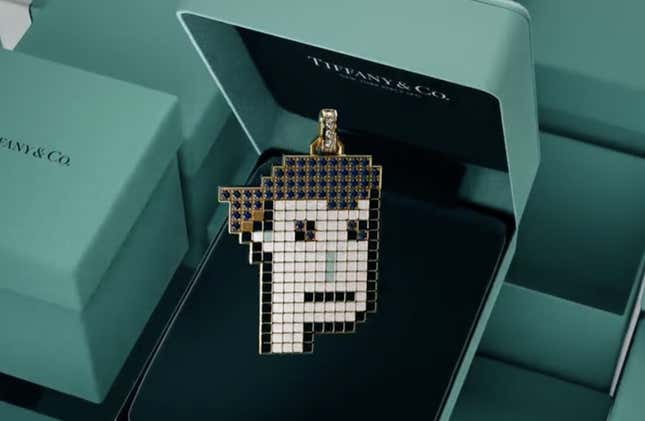Good morning, Quartz readers!
Here’s what you need to know
A Ukrainian grain ship left the port of Odesa. The shipment sailed following a UN-brokered deal last month, in which Russia agreed to end its blockade.
A Twitter shareholder sued Elon Musk. The suit seeks for Musk to follow through with his $44 billion Twitter buyout, citing “lame rationales” for backing out.
Hong Kong fell into a recession. GDP fell by 1.4% in the second quarter, its second consecutive quarter of contraction, as it weathers a fifth wave of covid.
OPEC oil output rose. While July production increased, the cartel fell short of quotas by 1.3 million barrels per day as some members lack capacity, according to a Reuters survey.
Zomato is reportedly planning to restructure. The Ant Group-backed Indian food delivery startup intends to split into several businesses under a parent company called “Eternal,” according to a memo.
The UK launched a register for foreign-owned properties. The Register of Overseas Entities seeks to crack down on illicit money flows from Russia, though critics say there are “loopholes.”
What to watch for
Starbucks is expected to report $8.14 billion in quarterly revenue on Tuesday. Last quarter, America’s bean queen saw a 15% increase in consolidated net revenues year-on-year, hitting a record $7.6 billion, supported by mobile orders, deliveries, and its membership program. But third-quarter sales are likely to remain depressed amid a slowed Chinese market and inflationary pressures, though a slight letup in the country’s zero-covid approach could help.
Meanwhile, the unionization drive in Starbucks’ largest market, the US, is keeping up momentum, even in the face of alleged union-busting activity. Interim CEO Howard Schultz continues to butt heads with labor organizers, having raised wages for all non-unionized workers this week. So far, his anti-union actions have yet to really dent the bottom line.
Strong consumer retail spending and Starbucks’ robust customer loyalty are likely to continue carrying it through a tough economy without too much turbulence, though increasing worker bargaining power is something to keep an eye on. (And if you want to give a tip on your next coffee run, check out your closest unionized Starbucks.)
Do NFTs made tangible still count as NFTs?

There’s never been a slick way to show crypto art outside of the digital realm, but Tiffany & Co. has seized the opportunity. The iconic jewelry brand has given owners of CryptoPunks, the digital avatars and so-called “original NFTS” developed by two Canadians in 2017, a way to physically manifest their treasured pixels.
For 30 ether ($50,000), the LVMH-owned jeweler is selling 250 “digital passes” that give CryptoPunk owners the opportunity to convert their avatar into a gem-encrusted pendant. Each gold pendant will contain about 30 precious stones like blue sapphires, violet amethysts, and bright red spinel, tracing the Punk’s pixel design. Only those who already own a CryptoPunk are eligible to buy “NFTiffs,” as the pendants are called.
Since Tiffany’s unveiled the project last weekend, more CryptoPunks have changed hands than any other time since July 18, for an average price of $74,000.
Boom and gloom

China’s factory activity dropped unexpectedly in July, according to the latest manufacturing purchasing manager’s index report—a sign that any economic rebound from the country’s disruptive covid lockdowns and its tumultuous real estate sector remains tenuous at best. The country’s poor economic outlook is adding to broader concerns about a global slowdown, especially since China is a key contributor to global growth.
But oil buyers have spotted a silver lining: the economic woes of the world’s largest crude importer are helping to drag down oil prices.
✦ Find stories like this to be helpful? Support our journalism by becoming a Quartz member. Sign up today and get 40% off!
Quartz’s most popular
🏝 Your ideal life may not require as much money as you think
🧐 African central banks are toughening up on Flutterwave. What should other startups expect?
🚜 Far fewer Indians work on farms these days, and that’s not a good thing
🌠 India’s IT industry is a lone bright spot in its dismal jobs market
😎 A brief introduction to the new/old world of direct indexing
Surprising discoveries
Wearable fans keep Japanese pets cool in the heat. No one wants to be a hot dog—or cat.
And jellied water keeps Japanese humans cool, too. Don’t knock it until you try it.
JPMorgan Chase is getting ready to travel. The bank has quietly been acquiring a number of businesses it will need before launching a travel empire.
It took 329 years to exonerate all the women condemned in the Salem witch trials. Elizabeth Johnson Jr. has finally been cleared of witchcraft.
Some crustaceans help fertilize seaweed. Their existence suggests pollination may have originated in the ocean.
Our best wishes for a productive day. Send any news, comments, sea bees, and cold ooze to [email protected]. Reader support makes Quartz available to all—become a member. Today’s Daily Brief was brought to you by Sofia Lotto Persio, Julia Malleck, Susan Howson, Anne Quito, and Mary Hui.
